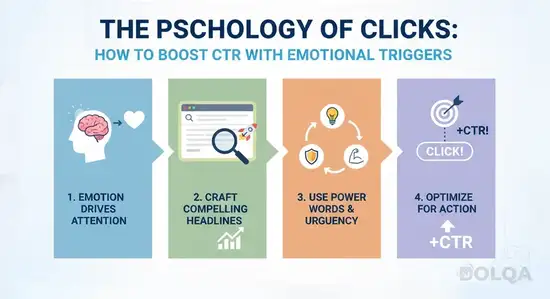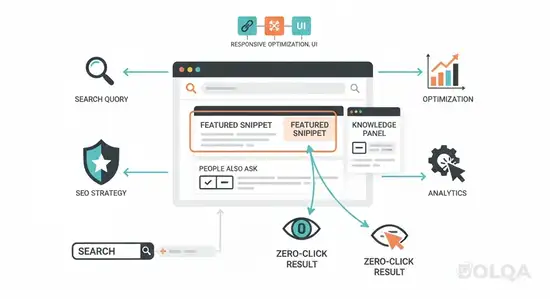How Advanced Author Schema and Dynamic Structured Data Dominate SEO Rankings in 2026
The digital landscape of 2026 has crystallized one undeniable truth: technical SEO infrastructure has become just as critical as content quality itself. While exceptional writing remains foundational, the invisible technical architecture supporting that content—specifically, the sophisticated implementation of structured data SEO—now determines which websites claim the coveted top positions in search results and which languish in obscurity.
For SEO professionals, developers, and content strategists navigating this increasingly complex ecosystem, mastering advanced schema implementation has evolved from an optional enhancement to an absolute necessity. The deployment of dynamic author schema, comprehensive Article markup, and strategically positioned FAQ schema represents the technical bedrock of modern SEO best practices 2025 that will continue dominating through 2026 and beyond.
This comprehensive technical guide examines how building a sophisticated, scalable structured data system—one that dynamically links every content asset to verified author profiles with machine-readable credentials—directly amplifies your website's authority signals, satisfies Google's rigorous quality standards, and delivers measurable improvements in rankings, visibility, and organic traffic. Whether you're upgrading an existing platform or architecting a new content ecosystem from the ground up, understanding these principles is non-negotiable for competitive Google ranking optimization.
The E-E-A-T Framework: Why Structured Data Is Your Technical Advantage
Google's Search Quality Rater Guidelines have elevated E-E-A-T (Experience, Expertise, Authority, Trustworthiness) to the paramount ranking consideration. This framework isn't merely about content quality—it's about proving, in machine-readable format, that real humans with verifiable credentials created your content.
Here's the critical insight most content creators miss: while compelling writing demonstrates experience and expertise, structured data SEO is the technical mechanism that broadcasts authority and trustworthiness signals directly to search engine crawlers. Google doesn't just read author bylines; it seeks precise, structured entity information that can be verified, cross-referenced, and integrated into its knowledge graph.
The Technical Challenge of Scale
The fundamental challenge facing large-scale websites, multi-author publications, and content platforms is linking thousands or tens of thousands of content pieces to credible, verified human beings in a technically consistent, error-free, and fully scalable manner. Manual schema implementation fails at scale. Inconsistent markup confuses crawlers. Missing data weakens authority signals.
This is precisely where dynamic author schema implementation becomes the cornerstone of effective content authority establishment and sustainable Google ranking optimization strategy.
Decoding E-E-A-T Through Schema Implementation
Google's algorithms don't interpret author credibility through prose alone—they require structured, machine-readable entity data:
Experience & Expertise (E & E): Detailed Person schema profiles including
jobTitle,alumniOf,hasOccupation,knowsAbout, and comprehensivedescriptionfields that outline domain-specific knowledge and professional backgroundAuthority (A): Direct schema connections from author profiles to recognized authoritative entities through Publisher schema relationships, verified social profiles via
sameAsproperties, and external publication credentials that cross-verify identity across the webTrustworthiness (T): Consistent, complete, and technically flawless schema implementation across your entire domain, combined with clear Organization schema and transparent copyright information that signals technical reliability and professional standards
Building a Scalable Dynamic Author System: The Technical Architecture
The objective is constructing what industry leaders call an "Author Hub" or "Expert Center"—a comprehensive ecosystem where every single content piece maintains an unbreakable, dynamically generated link to a verified human author profile. This connection must be automatically generated, information-rich, and absolutely consistent across your entire domain.
Core Components of Advanced Author Schema Profiles
A basic Person schema with just a name and URL provides minimal E-E-A-T benefit. The advanced author schema profile requires a comprehensive dataset that search engines can parse, verify, and integrate into entity relationships:
1. Verified Identity Foundation
- Full legal or professional name (
name) - Canonical URL pointing to the author's dedicated profile page (
url) - Unique identifier to prevent entity confusion (
@id)
2. Visual Trust Signals
- High-quality professional headshot (
image) - Consistent image across all platforms for entity verification
3. Professional Credentials & Expertise
- Current job title and role (
jobTitle) - Detailed professional biography (
description) - Educational background (
alumniOf) - Specific knowledge domains (
knowsAbout) - Professional occupation details (
hasOccupation)
4. Cross-Domain Authority Verification
- The critical
sameAsproperty array linking to:- Professional LinkedIn profile
- Verified Twitter/X account
- ORCID researcher ID (for academic content)
- Industry-specific professional directories
- Previous publication profiles on authoritative sites
5. Organizational Affiliation
- Direct connection to your site's Organization schema via
worksFororaffiliation - Publisher relationship that consolidates content authority under your brand entity
Implementing Dynamic Schema Generation Per Article
Technical precision demands that the Article schema (BlogPosting, NewsArticle, ScholarlyArticle) on every content page includes properly structured author information pulled dynamically from your author database:
{ "@context": "https://schema.org", "@type": "BlogPosting", "headline": "Your Article Title", "author": { "@type": "Person", "@id": "https://www.yoursite.com/authors/janedoe/#person", "name": "Jane Doe", "url": "https://www.yoursite.com/authors/janedoe/", "image": "https://www.yoursite.com/images/authors/janedoe.jpg", "jobTitle": "Senior Technical SEO Strategist", "description": "Jane specializes in enterprise structured data implementation with 10+ years experience...", "sameAs": [ "https://www.linkedin.com/in/janedoe", "https://twitter.com/janedoe", "https://orcid.org/0000-0000-0000-0000" ] }, "publisher": { "@type": "Organization", "@id": "https://www.yoursite.com/#organization", "name": "Your Brand Name", "logo": { "@type": "ImageObject", "url": "https://www.yoursite.com/logo.png" } }, "datePublished": "2026-01-15", "dateModified": "2026-01-20"}This establishes an unambiguous, machine-readable relationship: This specific article was created by this verified person, who possesses documented expertise in this domain.
The DOLQA Model: Building a Dynamic SEO Ecosystem
To manage enterprise-scale content operations with hundreds of authors and thousands of pages, manual schema coding becomes technically impossible and introduces unacceptable error rates. The solution lies in automatic schema generation driven by intelligent content management systems.
Understanding the DOLQA Architecture
A sophisticated system like the DOLQA model manages and dynamically assigns schema data based on user roles and author verification status, ensuring technical accuracy at scale. This architecture typically comprises:
1. Centralized Author Database
- Master repository storing all verified author data
- Includes biographical information, credentials, images, social verification links
- Categorizes authors by expertise domains and verification levels
- Maintains version history for updating credentials
2. Conditional Logic EngineWhen any content page loads, the system executes sophisticated conditional logic:
For Verified Staff Authors: System retrieves complete, rich Person schema from the database and injects it into the Article's JSON-LD block with full credentials, expertise markers, and cross-platform verification links
For Guest Contributors: System applies a modified Person schema acknowledging contributor status while maintaining appropriate authority signals, or alternatively uses Organization schema as primary publisher alongside contributor attribution
For Legacy or Unattributed Content: System defaults to Organization schema as author while maintaining content integrity and exploring re-attribution opportunities
3. Real-Time Schema Validation
- Automated testing against Schema.org specifications
- Google Rich Results Test integration
- Error detection and alert systems
- Continuous monitoring for schema conflicts or deprecations
This dynamic assignment ensures optimal author schema deployment for every content piece, significantly strengthening E-E-A-T signals and directly contributing to improved Google ranking optimization.
Two-Level Schema Deployment Strategy
Effective structured data SEO requires schema implementation at two distinct architectural levels:
Article Level Implementation
- Every content page includes complete Article schema
- Author property links to verified Person schema
- Publisher property connects to Organization schema
- Clear datePublished and dateModified timestamps
Author Profile Page Implementation
- Canonical author page (/authors/janedoe/) features comprehensive, standalone Person schema
- Acts as authoritative source for search engines to verify author identity
- Links to complete portfolio of authored content
- Establishes clear knowledge graph connections
- Provides rich biographical and credential information
Maximizing SERP Visibility: FAQ Schema and Rich Results Strategy
Beyond establishing technical authority through author markup, advanced structured data SEO delivers immediate, visible benefits in search engine results pages through rich result features. The strategic implementation of FAQ schema represents one of the most powerful tactics for improving click-through rates and dominating SERP real estate.
Strategic FAQ Schema Implementation
FAQ schema markup enables websites to earn expanded, highly visible rich results—often displayed as expandable accordions directly in search results—that dramatically increase listing prominence and user engagement.
Key Benefits for SEO Performance:
Expanded SERP Real Estate: FAQ accordions can triple or quadruple the vertical space your organic listing occupies, making your result impossible to miss
Direct Answer Positioning: Your content directly addresses user questions within the search results themselves, satisfying search intent immediately and signaling high relevance to Google's algorithms
Enhanced Click-Through Rates: By providing valuable preview information before the click, your listing appears more helpful and authoritative, driving significantly higher CTR—a critical ranking factor
Topic Authority Signals: Comprehensive FAQ coverage demonstrates topical depth and expertise, reinforcing E-E-A-T signals
FAQ Schema Implementation Methodology
Content Strategy:
- Integrate natural question-and-answer sections within article body content
- Research actual user queries through "People Also Ask" analysis
- Address questions that match search intent for target keywords
- Provide genuinely helpful, concise answers (40-300 words optimal)
Technical Implementation:
{ "@context": "https://schema.org", "@type": "FAQPage", "mainEntity": [ { "@type": "Question", "name": "What is author schema and why is it important for SEO?", "acceptedAnswer": { "@type": "Answer", "text": "Author schema is structured data markup using Person schema that provides search engines with verifiable information about content creators. It strengthens E-E-A-T signals by confirming author identity, credentials, and expertise, directly improving content authority and search rankings." } } ]}Quality Standards:
- Ensure schema content exactly matches visible on-page content
- Avoid promotional or sales-focused answers
- Maintain factual accuracy and objectivity
- Test regularly with Google's Rich Results Test tool
Implementation Roadmap: Technical Checklist for Developers
Phase 1: Infrastructure Development
1. Author Data Architecture
- Create dedicated database table or custom post type for author management
- Define required fields: biographical data, credentials, images, social links, expertise categories
- Implement author verification workflow
- Establish data validation rules
2. Canonical Author Profile System
- Build dedicated, indexable profile page for every author
- Design template featuring complete biographical information
- Include portfolio of authored content with dynamic querying
- Implement breadcrumb navigation
- Add social share functionality
3. Dynamic JSON-LD Generation Engine
- Develop script/plugin for automatic schema injection
- Create data mapping between author database and schema properties
- Implement conditional logic for different author types
- Build fallback systems for missing data
- Add schema version control
4. Quality Assurance Framework
- Integrate Google Rich Results Test API for automated validation
- Implement Schema.org validator checks
- Create error logging and alert systems
- Establish regular audit schedules
- Monitor Google Search Console for structured data issues
5. Publisher Entity Consolidation
- Create canonical Organization schema for your brand
- Ensure consistent Organization @id across all pages
- Link Article publisher property to this entity
- Maintain updated logo, contact information, and social profiles
Phase 2: Content Creator Guidelines
1. Complete Author Profile Requirements
- Professional headshot meeting technical specifications (minimum 400x400px, high quality)
- Comprehensive biographical statement (200-400 words) highlighting expertise and experience
- Current job title and organizational affiliation
- Educational credentials and relevant certifications
- Verified social media profile links
- Previous publication portfolio where applicable
2. Structured Content Development
- Plan content architecture with schema opportunities in mind
- Use semantic HTML with proper heading hierarchy
- Create dedicated FAQ sections addressing user queries
- Develop content in structured blocks compatible with schema markup
- Include original research, case studies, and verifiable data
3. Internal Linking Strategy
- Link to author profile pages when mentioning contributors
- Create topic cluster architecture connecting related content
- Build expertise hubs around author specializations
- Strengthen internal link graph for authority flow
4. Content Quality Standards
- Focus on original research and unique perspectives
- Cite authoritative external sources appropriately
- Update evergreen content regularly to maintain accuracy
- Build genuine content authority through depth and originality
Measuring Success: KPIs and Performance Metrics
Implementing advanced structured data SEO should deliver measurable improvements across multiple dimensions:
Technical Health Metrics:
- Zero structured data errors in Google Search Console
- 100% schema coverage across content portfolio
- Rich result eligibility for target pages
- Consistent author entity recognition in Knowledge Graph
Search Performance Indicators:
- Increased impression share for branded and topic queries
- Improved average position for content with enhanced schema
- Higher click-through rates on pages with FAQ rich results
- Growth in organic traffic to author profile pages
Authority Signal Metrics:
- Author entity appearances in Google's People Also Search For
- Brand entity recognition in Knowledge Panel
- Increased featured snippet captures
- Growth in "Expert" query rankings
Future-Proofing Your Structured Data Strategy
As we progress through 2026 and beyond, search engines continue evolving toward entity-based understanding and topical authority recognition. Future-proofing your structured data SEO strategy requires:
Stay Current with Schema.org Evolution
- Monitor new schema types and property additions
- Implement emerging markup for new content formats
- Adapt to deprecated properties proactively
Embrace AI-Generated Content Disclosure
- Implement appropriate schema for AI-assisted content where required
- Maintain human authorship attribution for editorial oversight
- Balance automation with authentic expertise signals
Expand Beyond Basic Implementation
- Add Review schema for product/service content
- Implement HowTo schema for procedural content
- Use Course schema for educational materials
- Deploy Event schema for timely content
Build Cross-Platform Entity Consistency
- Synchronize author profiles across all digital properties
- Maintain consistent NAP (Name, Address, Phone) for Organization schema
- Create unified brand entity across the web
Conclusion: Technical Precision as Competitive Advantage
In the increasingly competitive digital landscape of 2026, technical SEO precision has emerged as the ultimate differentiator for achieving and maintaining top search rankings. The evolution from static, manually coded markup to sophisticated, dynamic author schema systems represents not merely an incremental improvement but a fundamental paradigm shift in how authoritative websites establish credibility with search engines.
By embracing the principles outlined in this guide—centralized author data management, automatic schema generation per article, comprehensive E-E-A-T signal optimization, and strategic rich result targeting through FAQ schema—content organizations can build resilient, high-authority web presences that withstand algorithm updates and outperform competitors.
The implementation of these SEO best practices 2025 and beyond ensures your content doesn't simply meet Google's quality standards—it provides irrefutable, machine-readable proof of content authority, expertise, and trustworthiness. The technical infrastructure you build today will compound in value over years, creating sustainable competitive advantages that cannot be easily replicated.
The question isn't whether to upgrade your structured data implementation to this advanced model—it's how quickly you can execute the transformation. Begin with your highest-value content, establish the technical foundation systematically, and scale deliberately. Your future search visibility depends on the technical decisions you make today.
📚 References and Authoritative Sources
Google Search Central: Understanding Structured Data - Official documentation on implementing and validating structured data markup
Google Search Quality Rater Guidelines - Comprehensive framework detailing E-E-A-T evaluation criteria and content quality standards
Schema.org Official Documentation - Complete specifications for Person, Organization, Article, FAQPage, and all schema types referenced
Google Search Central Blog - Updates on rich results, structured data features, and algorithm changes
Technical SEO Research Studies - Industry publications documenting correlation between structured data implementation and ranking improvements
Web Development Standards Organizations - Best practices for JSON-LD implementation and semantic web markup
Search Engine Journal & Search Engine Land - Industry analysis of E-E-A-T signals and structured data impact on rankings
Moz, Ahrefs, and SEMrush Research - Data-driven studies on click-through rate improvements from rich results and FAQ schema







Comments (0)
Leave a Comment
No comments yet. Be the first to comment!